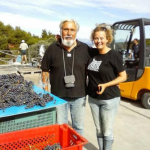The psychological barrier has been crossed.
The International Workers’ Day brought us the first increase in the price of Eurosuper 95 petrol above 10 kuna since November 2014. The current prices are 10.09 kuna for Eurosuper 95 Plus at INA’s petrol stations, 10.10 kuna at Tifon, 10.20 kuna at Crodux, 10.23 kuna at Lukoil for Eurosuper 95 plus, and 10.09 kuna at AdriaOil for Eurosuper 95 plus, reports Jutarnji List on May 2, 2018.
The reason for the increase in the price is a similar increase in crude oil prices on the global markets, which has now spread to the Mediterranean market and consequently to the retail prices of petroleum products in Croatia. On May 1, the price of a litre of petrol increased on average by 14 lipa and of diesel by 13 lipa.
Last time the prices of Eurosuper 95 plus were above 10 kuna was in 2014, and in June and July of that year, the prices at one point even surpassed 11 kuna per litre. Interestingly, in February 2014, the price of Eurosuper 95 was similar to the current levels, but at that time the crude oil price was around 100 dollars a barrel, while now it is just 73 dollars. However, since February 2014 the government has liberalised petrol prices in Croatia, and in April 2014 the excise tax was increased by additional 20 lipa and now amounts to 3.66 kuna per litre of petrol.
In the meantime, according to unofficial analyses, margins of retail oil companies rose from 0.7 kuna to one kuna per litre, and all this, together with a high 25 percent VAT rate and the exchange rate for the dollar, has led to the current retail prices in Croatia. However, Croatian petrol prices are still somewhat below the European Union average and only slightly higher than the average in the transitional countries.
Estimates about future crude oil prices on the global markets differ a lot. One such forecast was presented this week by Pierre Andurand, a well-known hedge fund manager in the oil market, who said it was not impossible that oil prices could rise in the next several years to as much as 300 dollars.
Petar Sopek and Ivan Škog from the Institute of Public Finances argue that, although the rise in prices of crude oil in the world markets usually automatically means an increase in the price of petroleum products as well, this does not have to be so. The excess supply of crude oil in the world market can lead to a fall in prices. On the other hand, technical problems in the work of a refinery which turns crude oil into motor fuels can lead to an increase in prices on a local market, despite the simultaneous fall in global prices of crude oil.
Since crude oil production from domestic sources is insufficient, Croatia imports crude oil to meet the demand in refineries, but it also imports a certain amount of petroleum products, mostly diesel fuel.
Translated from Jutarnji List (reported by Frenki Laušić).










